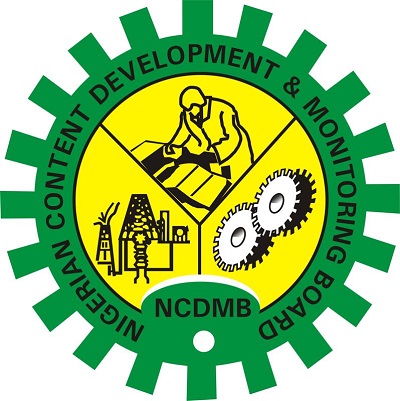
NCDMB
NCDMB Signs MoU with UBEC on Smart Schools Initiative
The Nigerian Content Development and Monitoring Board (NCDMB) and the Universal Basic Education Commission (UBEC) on Thursday signed a Memorandum of Understanding (MOU) for the implementation of the NCDMB-UBEC Smart Schools Development Initiative (NUSSDI).
The MoU will enable the provision of educational infrastructure, particularly in areas with high rates of out-of-school children as well as underserved rural communities, integration of technology in learning, building the capacity of teachers and educational administrators and improving overall learning outcomes.
At the signing ceremony on Thursday in Abuja, the Executive Secretary, NCDMB, Engr. Felix Omatsola Ogbe, explained that the NUSSDI would leverage the combined mandates, expertise and resources of the two federal agencies “to bequeath smart schools equipped with modern technology and innovative teaching methods,” and thus “equip the next generation of leaders with the knowledge, skills, and technological capacity necessary to thrive in an increasingly digital world.”
He emphasized that basic education is the foundation of human capital development and that the NCDMB is deliberate in its efforts to develop “a pipeline of talents for Nigeria’s oil and gas industry.”
In his comments, the Executive Secretary of UBEC, Dr. Hamid Bobboyi described significance of the MoU, as a “game changer” for the funding and implementation of basic education, adding that the partnership would have a profound and lasting influence on the lives of children, families, and Nigeria’s future.
He canvassed for increased resources and support in the education sector, adding that the partnership with other agencies and organizations will bridge funding gaps.
Under the MOU, NCDMB will provide training and professional development opportunities for teachers, while UBEC and NCDMB will collaborate on infrastructure development projects.
The MoU also seeks to develop and implement local content programmes in basic education, foster research and development in basic education and promote industry-academia partnerships.
The Smart Schools Development Initiative represents a systematic broadening of NCDMB’s programmes for promotion of digital education as well as the study of Science, Technology, Engineering and Mathematics (STEM), under which the Board has provided several secondary schools in the country’s six geopolitical zones with fully equipped Information and Communication Technology Centres (ICTs) and trained scores of teachers to enhance their effectiveness in impartation of knowledge and relevant skills.
Cardoso Restates CBN’s Commitment To Youth Development
The Governor of the Central Bank of Nigeria (CBN), Mr. Olayemi Cardoso, has reiterated the Bank’s commitment to developing the next generation of leaders in the financial and social sciences sectors. He has also emphasised the necessity of addressing the scarcity of skilled professionals in finance-related fields in Nigerian universities.
Mr. Cardoso stated this recently during a strategic engagement with the President and Chairman of the Governing Council of the Nigerian Economic Society (NES), Professor Adeola Adenikinju, who led a team of NES officials and the Nigerian Economics Students Association (NESA), at the CBN Head Office in Abuja.
Underscoring his belief in the collective effort needed for youth development, he stressed that special consideration should be given to creating opportunities for youths and providing them with tools to thrive in their respective sectors and make them globally competitive.
According to him, the meeting, which he considered a demand-driven conversation, had set the stage for a robust pipeline of talents that will drive Nigeria’s Financial System Strategy.
Following presentations by members of NES and NESA on research topics, recommendations, and ongoing activities that could assist the CBN in achieving its mandate, Governor Cardoso emphasised the need for organising mentorship collaboration with NES and NESA to enable both associations to achieve their set objectives.
Furthermore, the Governor noted the importance of communication, stating the need to simplify dense and heavy economic concepts, which had always been challenging when communicating monetary policy. He noted the place of the young economists in demystifying the subject and giving it a better perspective.
While reaffirming the CBN’s readiness to work with NES and NESA and encourage significant female representation, Cardoso expressed optimism that the collaboration with the groups marked an essential step towards building a resilient and inclusive financial sector that thrives on talent, innovation, and diversity. This sentiment, he noted, should instil hope in the sector’s future.
In his remarks, the President and Chairman of the Governing Council, Nigerian Economic Society (NES), Professor Adeola Adenikinju, highlighted areas of concern for the team and the need for collaboration with the CBN. While noting that the association had the largest number of economists who could transfer such knowledge, he cited a gap around mentorship programmes. According to him, other areas include research support, internship opportunities, workshops/conferences and leveraging social media in communication.
Also speaking, the National President of the Nigerian Economics Students Association (NESA), Comrade Bakre Israel Boluwatife, expressed gratitude to the CBN Governor for the opportunity for the engagement. He said NESA looked forward to contributing to the body of research in inflation and money supply.
